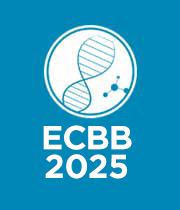Biography:
Prof. Dr. Abdulsada Abdulabbas Rahi is currently working as Dean of Science College of Wasit University, Iraq. Dr Rahi received his Postdoctoral degree on Medical Parasitology from the University of Tehran of Medical Sciences (TUMS), Iran. Dr Rahi completed his PhD on Biotechnology of Leishmaniasis from Al-Nahrain University, Iraq. Dr Rahi completed his Masters on Medical Microbiology from the University of Al-Anbar , Iraq. He then worked at the Institute Wasit University/ Iraq, served as Professor at the University in Medical Biotechnology. Dr. Rahi has authored several publications (67 Published papers) in various reputed journals. His publications reflect his research interests in Biotechnology and Medical Parasitology. Dr. Rahi is also an Associate Editor of the Journals: Journal of Applied Sciences and Research, Journal of Agri-Food and Applied Sciences (JAAS), Journal of Scientific Research and Studies and Scholars Academic and Scientific Journals (SAS).
Dr. Scientist is serving as a member or fellow in Association of American Society for Microbiology (ASM). He is currently in charge of ongoing scholarly project Nanobiotechnology. Dr. Rahi is awarded Golden Prize by 10th International Exihibition of Inventions and Innovation Forum and 3rd World Inventions and Innovation Forum in China / Foshan and in SiriLanka, 2020. Dr. Rahi is awarded Golden Prizes from Germany 2021,2023 and INTARG Poland 2023, 2024. Also, Dr. Rahi is awarded Scientific Day's Prize for Medical Researchs, 2014 by Iraqi Ministry of Higher Education and Scientific Research. Dr. Rahi is awarded Silver Prize by International Exihibition of Inventions and Innovation Forum in Germany / Nuremberg, 2021. Dr. Rahi is supervised PhD and MSc students and Scientific referee.
Research Interest: He is interested in Molecular parasitology, Nanobiotechnology, Biotechnology of Leishmaniasis, Medical Parasitology, Medical Microbiology, Diagnostic methods, Kala-azar etc.



Title : Production of nanoliposomal amphotercin B topical gel as effective treatment for human Cutaneous Leishmaniasis (CL) disease
Title : Production of nanoliposomal amphotercin B topical gel as effective treatment for human Cutaneous Leishmaniasis (CL) disease